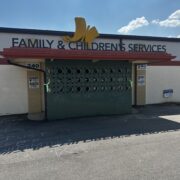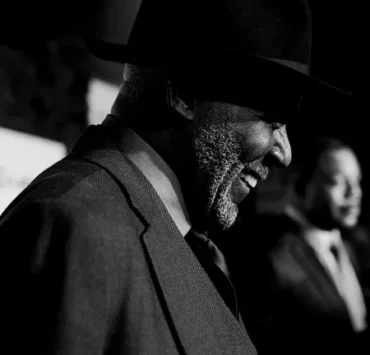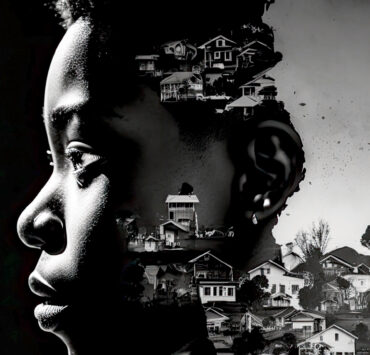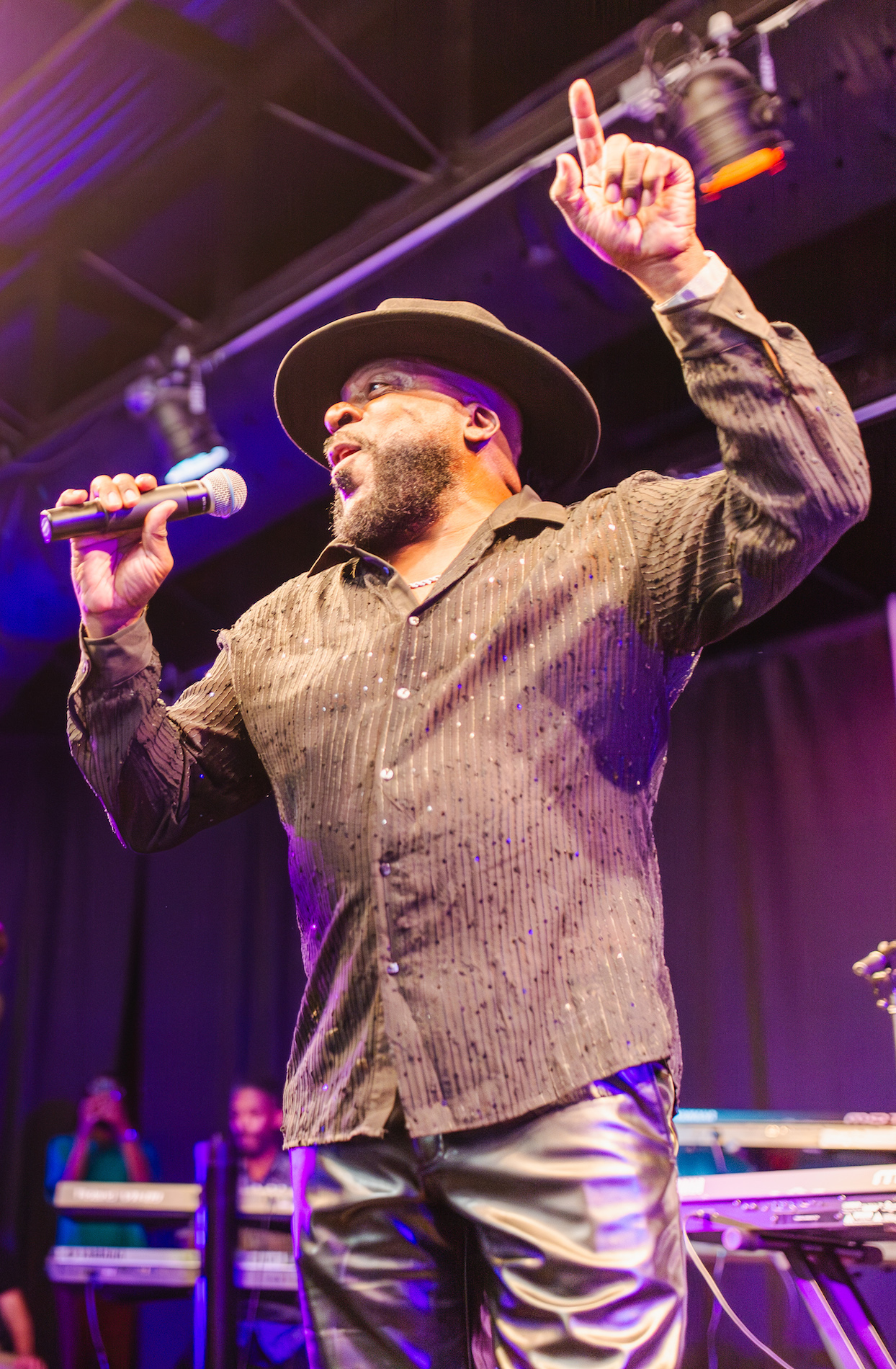
LOCAL & STATE
Ashley Jones
The Oklahoma Eagle
Photos Basil Childers, The Oklahoma Eagle
TULSA, Okla. The duo Yarbrough and Peoples brought the house down with its version of the GAP Band hit “You Dropped the Bomb on Me.” Master of Ceremonies Chuck Cissell told tales about the honoree, the late Ronnie Wilson, a stalwart Gap Band member. Dr. Lester Shaw belted out a soulful rendition of the R&B band Maze’s hit “Before I Let Go.” In response to Dr. Shaw’s performance, the crowd at the Big Ten Ball Room let go a scream or two.
That is how north Tulsa paid tribute to Wilson, one of the northside community’s music icons who made it big in the entertainment world.
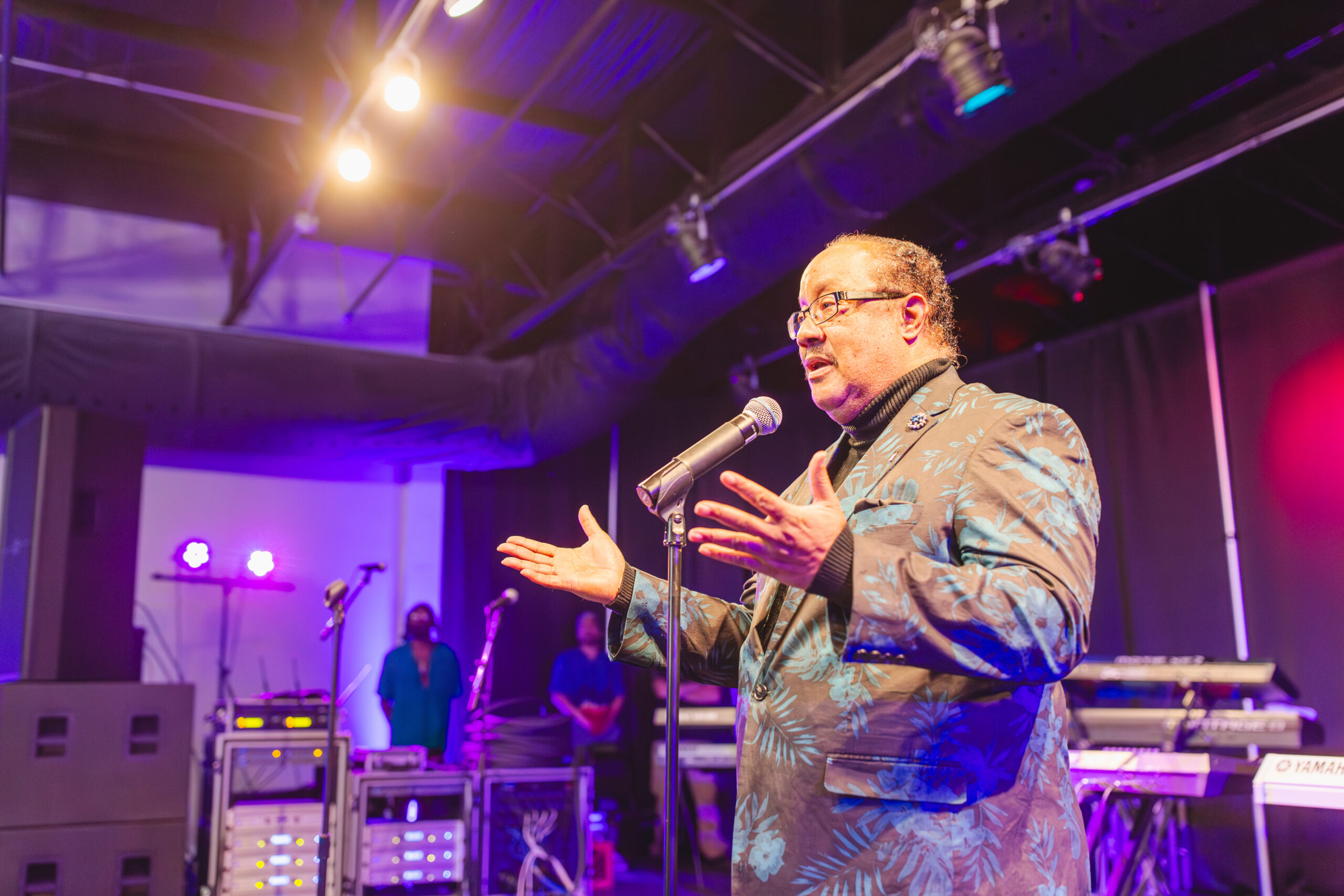
The event, held Nov. 4 at the Big Ten Ballroom, 1624 E. Apache St., was filled with music, laughter, and love. It was the kind of evening that would have featured Wilson in his heyday as a musician. Wilson’s influence was palpable throughout the room nearly two years after his passing on Nov. 2, 2021. Whether it was from his family or classmates from the Booker T. Washington High School Class of 1966, the whole house smiled in remembrance of the joy and light Wilson brought to whatever room he shared his gift of music.
Linda Wilson, Ronnie’s widow, appealed to Shaw, executive director of A Pocket Full of Hope, to host a tribute for her late husband. Ronnie Wilson, a founder of the GAP Band, played keyboard horn and percussion for the group. The band’s name stands for Greenwood, Archer, and Pine streets that are the main streets connected to the famed Black Wall Street. The other members were Ronnie’s brothers, Charlie and Robert Wilson. The GAP band was hugely popular across the U.S. particularly in the 1970s and ‘80s.
“People don’t understand that music is a discipline and to play music, no matter what genre, you have to have a level of discipline to perfect your spark to perfect your gift. You know, and he nurtured his spark,” Shaw told the crowd.
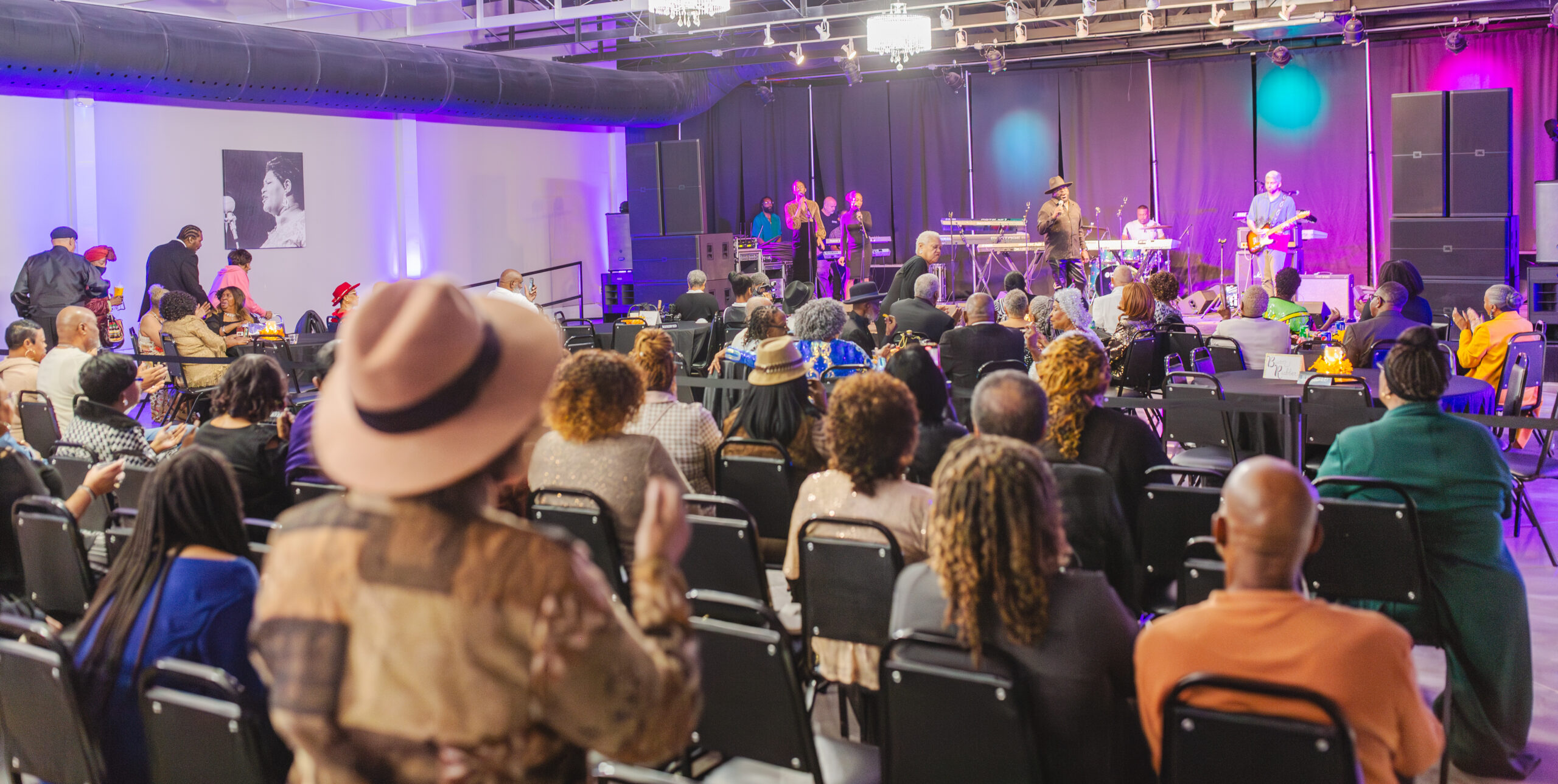
GAP Band hits
The GAP Band gave the world many top hit songs. Among the hits are “Outstanding,” “You Dropped the Bomb on Me,” and “Yearning for Your Love.” All these tunes and more were covered during the night by a band that the GAP Band discovered, Yarbrough and Peoples. They headlined the event with lead singers Alisa Peoples and Cavin Yarbrough.
“The spirit of Ronnie is still alive; he left a legacy,” Peoples said. “We want you to sing, we want you to enjoy it, we want you to dance, and we want you to have a wonderful time.”
The mood was mellow as purple, blue, and yellow lights circled the venue. About a hundred people attended. They moved closer to the front to fill up the space. Wilson’s closest family and friends sat at the front in round tables covered with gorgeous fall centerpieces and black cloth. The evening featured a range of music – from jazz to funk and, naturally, R&B. Guests went to concessions and the t-shirt tables out front for refreshments. The crowd was lively! During the performances, when the artists asked the audience to scream, they gladly delivered.
From Broadway and Hollywood, Cissell, as the master of ceremonies for the event, offered an anecdote from Loretta, Wilson’s sister, about Wilson messing with his family from their childhood.
“What Ronnie used to do was chase her and Charlie around because he would take boogers out of his nose and wipe it on them, and I told her that’s a very cute story, but I’m going to tell it,” Cissel said.
Cissel also shared a story from Wilson’s previous group, the New Imperials, during his time at Carver Junior High School. They were to sing “In the Steal of the Night” for the Carver Junior High School Assembly. Someone decided at the last minute to sing the song the group wanted to perform, “Twist and Shout,” but the teachers forbade it from being too risqué.

Stories about Ronnie
“We couldn’t even get two choruses out before Mrs. Crutcher did not run down the aisle. She flew. It was like she had a cape on, like Batwoman,” Cissel said. “She said pull those curtains, and we kept on singing anyway. The next day, we were suspended. Who do you think it was who had the idea to sing ‘Twist and Shout’?”
Cissel then gave recognition to Linda Wilson for arranging the tribute to her late husband. Driven by a desire to ensure that her husband’s memory stays alive, she worked tirelessly with Shaw to make the best tribute for the late great icon.
“What I want people to know are who are the shoulders that we stand on,” Shaw said. “We should always remember the people who have sacrificed to make our lives better. We want people to know that there is life after death, and this is a grand showing of how life still exists after death. Life after death always means to me that people will keep the legacy alive.”
Linda and Ronnie had been friends since high school. Although they were not married the entire time, they were friends for the most significant part of their lifetimes. He was the first flugelhorn and trumpet player at his school and a drum major of Booker T. Washington for his junior and senior years. Linda said before the ’60s and the Civil Rights Act in 1964 was before integration, and black students, along with the community, were not even allowed to cross the tracks by Archer Street to go downtown.
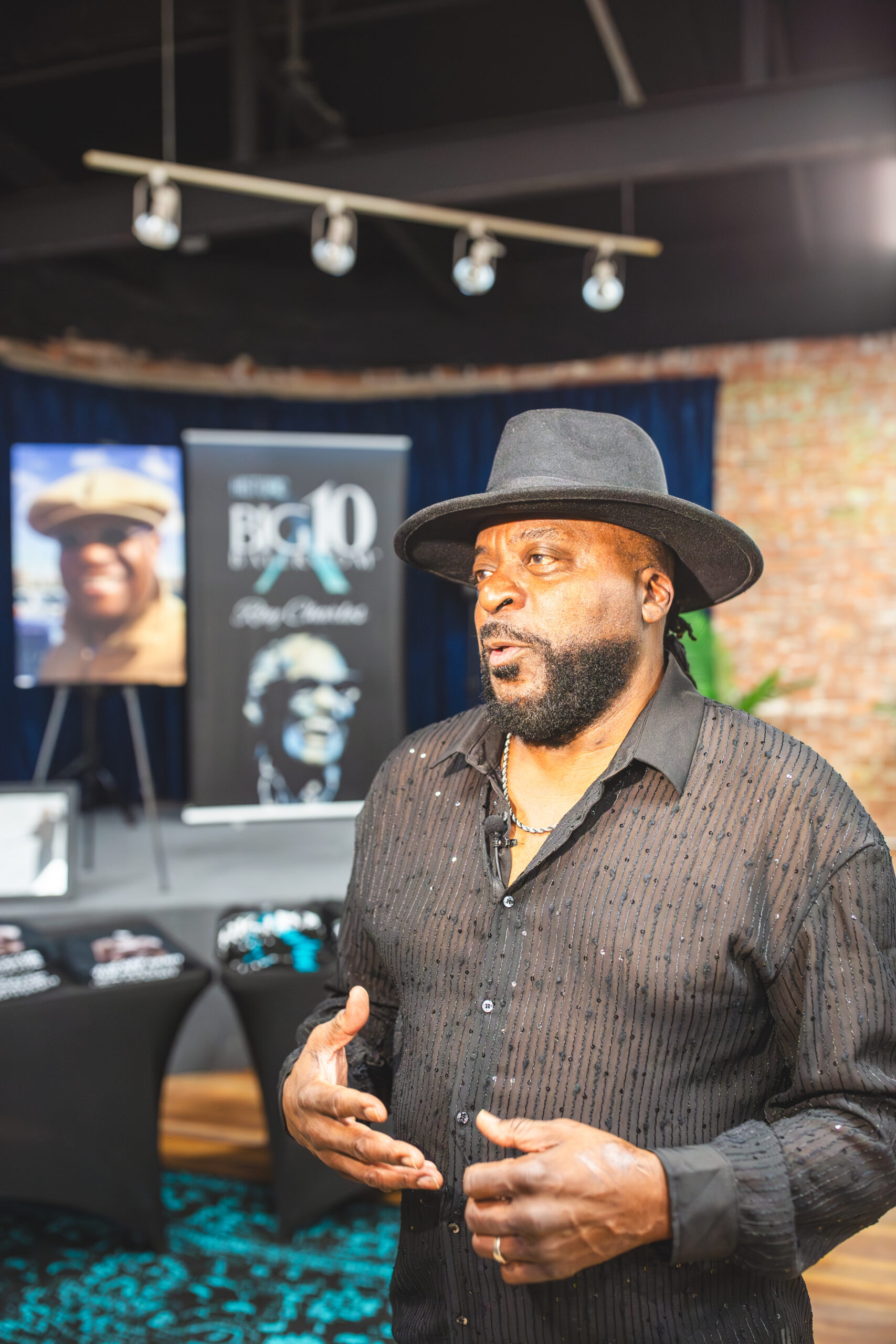
Support for Greenwood
“This is why Greenwood was so strong because they made us stay on the other side of the tracks, so we put together and did things for ourselves and had our resources, our banks, our grocery stores, everything was Black-owned back in the day,” Linda Wilson said.
“GAP Band were way ahead of their time when they named their band in 1967. They were smart enough and intelligent enough to know what Greenwood, Archer and Pine streets meant to north Tulsa. That did a lot for the northside as far as recognition and giving us some pride.”
In an interview with The Oklahoma Eagle, Linda said that she got to know Wilson better in 1982 when she was asked to go on tour with them on the “Drop the Bomb” Tour, and they toured 42 cities throughout the United States, taking around four months.
“He was an amazing, talented, wonderful man,” Linda Wilson said. “We just got each other. He was a confidante, my friend.”
Shaw performed and brought the crowd to their feet with “Before I Let Go.” One of the groups that he mentors through A Pocket Full of Hope, Upbeat 360, also performed. The young lady trio sang “One Fine Day” by The Chiffons.
“We have to do more in his name,” Shaw said of Ronnie Wilson. “This is like a kickoff of things to come in terms of musicians and just average people doing great things. Ronnie had a love of music. And that resonated with me, and it resonated with the kids in our organization.”
Ronnie James Wilson’s timeless music resonates with a younger generation for inspiration and collaboration. “Outstanding” alone remains one of the most sampled songs in history and has been used by more than 150 artists.
“I think it’s because of the beat and tempo of their sound,” Linda Wilson said. “As soon as I hear it on the radio, any song that has their beat, I can say that’s GAP Band, and that has picked up with all the younger groups. Charlie has done duos with Snoop Dogg, and Bruno Mars – anyone you can think of – has sampled GAP Band music.”
Linda said Ronnie always had a love for north Tulsa. Right on the corner of where Greenwood meets Pine, the city dedicated a street to The GAP Band called GAP Band Avenue.
“Because everything was segregated so, black people had more pride in each other, and they were closer to each other, and they were able to help each other and motivate each other back in the day,” Linda Wilson said. “And that brought a sense of loyalty and love for the northside itself. That’s what’s instilled in our hearts. ”
Other family members who attended, including Ronnie’s sister and cousins, said they were proud to honor him. The icon’s memorabilia sits in historic museums such as Greenwood Rising and the National Museum of African American History and Culture.
About Pocket Full of Hope
The organization instructs, mentors, and advises children ages 7 to 19 and focuses on teaching the arts. In the 23 years the program has been in place, it states that 100 percent of the active participants have graduated from high school.
About Historic Big 10 Ballroom
In 2008, A Pocket Full of Hope purchased the Big 10 Ballroom to restore it as a venue for their stage performances and short films. In 1948, Lonnie Williams, Tulsa’s second black police officer, and his business partner, Richard Thompson, constructed the Big 10 Ballroom in the Art Deco style. The venue was created to serve as a destination for famous and up-and-coming musicians. The Tulsa Tribune once referred to the Big 10 Ballroom as the “toniest” Negro nightclub this side of “Harlem…” The ballroom has hosted many notable musicians like Ray Charles, James Brown, BB King, and Little Richard. Although the ballroom thrived in the 1950s and early 1960s, it closed its doors in 1966.








